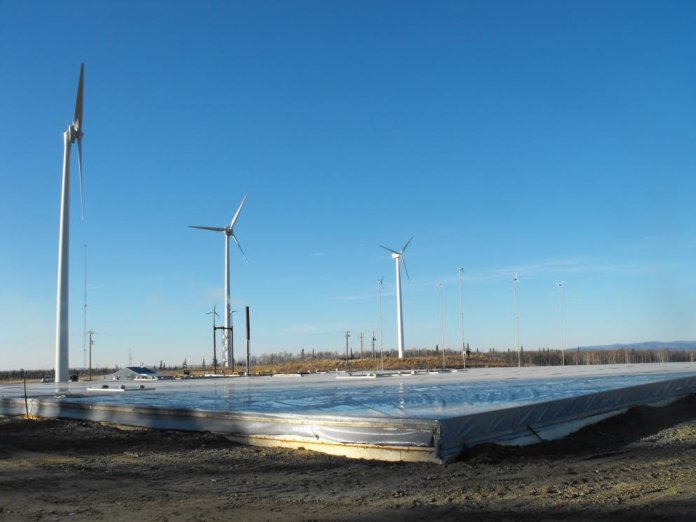Claiming the deal would have led to higher electric bills, the Regulatory Commission of Alaska (RCA) recently ruled against a power purchase agreement (PPA) between the proposed Delta Wind Farm expansion and the Golden Valley Electric Association Inc. (GVEA). Now, the wind farm’s owner, Mike Craft, is speaking out about the need for the renewable energy project for the sake of Alaskan residents’ health.
Craft, who says, over the past 10 years, he has “won the legal battles but lost the war so far” in court hearings with RCA and GVEA over the wind farm‘s expansion, wonders why the wind facility would be rejected in a state with high unemployment rates, high costs of energy and poor air quality.
“My family and fellow Fairbanks/North Pole citizens are paying some of the highest cost for power – $0.22/kWh – in the nation and are living in the poorest air quality in the world,” Craft tells NAW in a statement.
In turn, Craft claims, the RCA’s decision on the Delta Wind farm “makes no sense.”
“How could it possibly cost $2.63/kWh to regulate $0.12/kWh power? That’s what GVEA got away with at the RCA,” he says.
The Delta Wind Farm is currently operating at 2 MW, but Craft has been working to expand the project over the past decade to 24 MW. This most recent proposal called for a total of 13.5 MW.
According to a recent press release from GVEA, Delta Wind Farm Inc. (DWF) had argued that GVEA should be forced to purchase power from the proposed wind farm under the Public Utility Regulatory Policies Act. However, GVEA said its evaluation and modeling showed that putting more wind power into the grid would have significantly increased GVEA’s fuel and maintenance costs and jeopardized reliability.
The RCA ruling also said GVEA would have had to “provide operating reserves that are dispatchable on short notice to offset changes in wind generation” and that its coal-fired resources and battery storage system cannot be used to do so. GVEA also operates its own wind farm, Eva Creek, which does not “exceed the thermal regulation capability of its lowest-cost thermal generation – the North Pole Expansion plant,” the RCA report says. The Delta Wind Farm expansion, however, would “exceed the North Pole Expansion plant’s regulation capabilities,” making GVEA’s “high-cost” thermal units responsible for regulating the Delta Wind Farm.
The RCA’s report further stated, “Unless DWF agrees to pay GVEA $0.16/kWh to take DWF power – which we do not expect it to do – GVEA’s ratepayers will be subjected to higher costs if GVEA takes power from DWF.”
“In the final analysis, the cost of integrating DWF’s proposed wind project far exceeded the benefits,” said Cory Borgeson, GVEA’s president and CEO. “Our members would have been economically disadvantaged as a result.”
According to DWF, the proposed expansion has now been “effectively blocked” because of “GVEA’s unlawful pricing methodology.”
In conclusion, Craft believes the decision really stemmed from “keeping competition out of the market.”
“People are suffering irreversible health issues right now – and I can’t do anything to relieve these problems,” he says.





also why invest in a state going down the tubes . fishing , logging , oil and tourism a bust , wishful thinking in building a business like this , big lesson learned by mr. not-so-crafty
why would you build something like this before you knew you had a buyer , not too smart